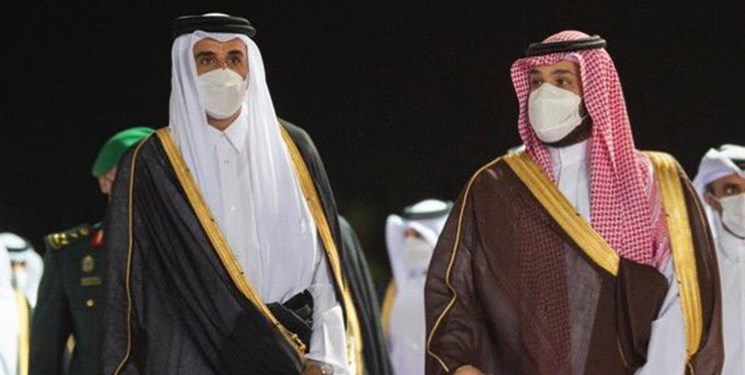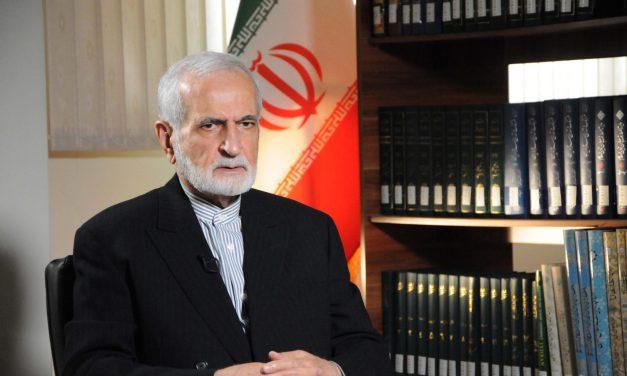Speaking in an interview with the website of the Strategic Council on Foreign Relations, Amin Parto referred to the Saudi Arabia’s strategy in West Asia and the recent visit of the Saudi crown prince to Qatar and other Persian Gulf states, and said: Saudi Arabia is reviewing its foreign policy in the region and while intending to reduce tension with countries and hold some negotiations, seeks to reduce the cost of its policies.
He added: In recent years, Saudi Arabia has defined “more limited interests” for itself in the region, the most important of which is the resolution of the Yemen war; to such an extent that Saudi cities would not become target of missiles and drones, and the political system in Yemen be ruled in such a way that would not dependent on Saudi Arabia’s rival, and the power of Mansour Hadi’s government be restored in Sanaa as a government recognized by the United Nations.
The analyst of West Asia affairs continued by stating that Saudi Arabia has defined the objective of its “limited interests” in such a way that it would not involve itself in important regional cases as in the past, adding: In fact, unlike the UAE, which seeks to improve relations with Turkey, or good relations with Syria or deepening relations with the Zionist regime, Saudi Arabia has not been very active in such issues and has shown reluctance in playing a role in such issues in a conservative way.
Priority of domestic issues for the crown prince
Parto explained: Under the current situation, internal issues and the proclamation of the monarchy for Mohammad Bin Salman have become more important while, in the meantime, regional issues have lost their priority.
At the same time, he stressed, this policy cannot be considered as “passive”, rather Mohammad bin Salman acts more defensively and is waiting for some developments and the resolution of issues, adding: The Saudi crown prince has concluded that he should use “money-laundering diplomacy” to a lesser extent; for example, it has greatly reduced lending to Arab countries or economic aid to Pakistan.
The expert on West Asia affairs added: Saudi Arabia once entered the Yemen war with the encouragement of the United States and in its own interests, but now it is being pressured as an aggressor; therefore, Saudi Arabia no longer wants to be an infantry and pay political, economic and prestige costs in this direction.
Parto continued: Based on the analysis of the Saudi media and think tanks, Mohammad bin Salman has come to the conclusion that the UAE has damaged Saudi Arabia’s reputation by involving Saudi Arabia in fruitless tensions that have nothing to do with its interests; for example, it was not that much necessary for Saudi Arabia to involve itself with the siege of Qatar.
Reducing adventures
He stated: It seems that Mohammad bin Salman has become more cautious compared to his past experiences; he is now experiencing the consequences of policies such as the use of death squads and kidnappings, and is trying to take defensive steps by reducing adventures.
Referring to reports of Qatar trying to mediate between Riyadh and Ankara and the possibility of a meeting between the Saudi crown prince and the Turkish president, the analyst of West Asia affairs said: Doha is eager to reduce tensions through mediation between Turkey and Saudi Arabia. Such development will bring benefits to Qatar, and in return, it expects Saudi Arabia to be able to mediate in the relationship between Qatar and Egypt. It also seems that Turkey is willing to resolve some tensions with Saudi Arabia due to economic problems.
According to the expert on West Asian affairs; Saudi Arabia seeks to send a clear message to the United States that if Saudi Arabia does not pay for the Middle East issues, they should expect a less secure Middle East. In fact, Mohammad bin Salman criticizes some US pressure on Riyadh as an ally and partner of Washington, and wants the US to maintain order in the region in favor of its allies, and tends to reduce the costs it has incurred if the status quo continues.
Parto pointed to the presence of the Emir of Qatar at the Persian Gulf Cooperation Council summit in Riyadh, as well as the emphasis of member states on coordinating the foreign policies of the member states and strategic cooperation in the final statement, and continued: The member states of the Persian Gulf Cooperation Council have deep differences that cannot be eliminated. Therefore, in general, it seems that Saudi Arabia’s policy towards the members of the council will continue the same process as in the past.
Referring to Saudi pressure on the Lebanese resistance in Lebanon and efforts for political domination in the country, and the expectation of Beirut officials to receive economic assistance from Riyadh, he said: For many years, the rich people in Saudi Arabia and the countries of the southern Persian Gulf in general have not been spending as much money in Lebanon as they used to, and this has greatly damaged the Lebanese tourism-based economy.
Parto added: Europe and the United States expect that Lebanon to be able to maintain its economy by the injection of money, but Saudi Arabia insists it will not spend money on Lebanon as long as it is not at the center of its policies. Therefore, it is very unlikely that the Saudis provide significant assistance to Lebanon.










0 Comments